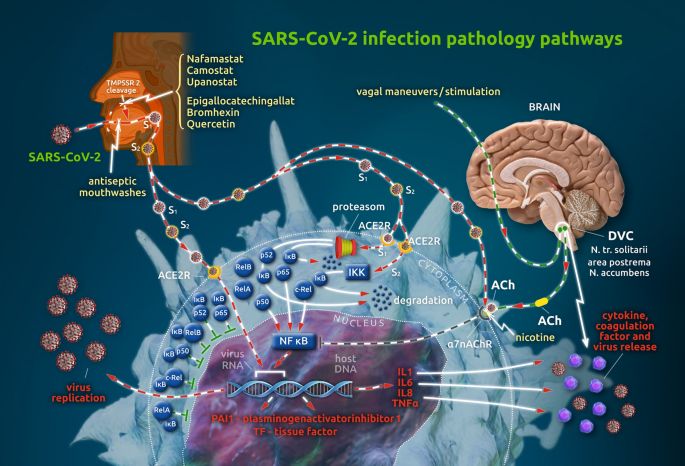A Review published in Discover Viruses aims to search the literature for antiviral strategies that, in addition to the development of specific vaccines, may help to contain the rapid spread of infection chains.
#MedSky
Measures that could prevent the next viral pandemic - Discover Viruses
The coronavirus disease 2019 (COVID-19) pandemic has presented humanity with enormous challenges in terms of both medically managing the acute waves of infection and dealing with the sociopolitical consequences of the important measures taken to combat the viral threat. The division of societies into opposing factions—those who support the measures and those who doubt the viral causality of the observed disease progression—has had a profound impact on our social and political systems. Furthermore, the prevalence of postviral syndrome (long COVID-19) and postvaccination syndrome is increasing. Numerous viral mechanisms that have facilitated the exponential spread of infection are known from the study of other viral pathogens. For example, the cleavage of the spike glycoprotein (SGP) into S1 and S2 by transmembrane serine protease 2 (TMPSSR2) markedly increases the affinity of the virus for the angiotensin-converting enzyme 2 (ACE2) receptor, thereby significantly increasing infectivity. Similarly, the potential blockade of α7n-acetylcholine receptors (α7nARs) can significantly impair the body's primary anti-inflammatory mechanism, the cholinergic anti-inflammatory pathway. The various mechanistic pathways of SARS-CoV-2 infection, such as SGP cleavage to accelerate viral entry and nonintrinsic high-affinity binding to acetylcholine receptors, are likely common to other viruses. Given the inevitability of the next viral pandemic, in addition to the continued advancement of antiviral vaccines, it is imperative to incorporate strategies to prevent future viral threats that target these mechanisms. This narrative review aims to search the literature for antiviral strategies that, in addition to the development of specific vaccines, may help to contain the rapid spread of infection chains. The proposed measures, such as the use of transmembrane serine protease 2 (TMPSSR2) inhibitors, antiviral mouthwashes or high-affinity cholinergic ligands, have the potential not only to counteract the development of viral resistance to vaccines, but also to prevent and treat post-acute infection syndromes in the event of future viral pandemics. Graphical Abstract






